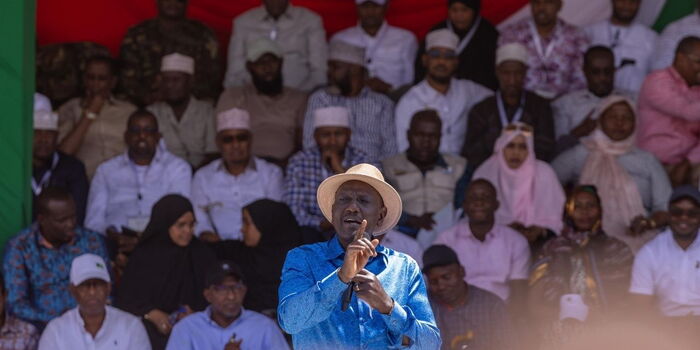Civil Servants Criticize Ruto’s Taskforce Report, Reject Key Findings
A major standoff is brewing within the Ministry of Health after public health officers rejected the findings of the Presidential Taskforce on Addressing Human Resources for Health.
On Tuesday, the officers, through their union, criticized the task force’s report, particularly its claim that the two Principal Secretaries in the Ministry of Health are at odds with each other.
According to the preliminary findings presented to the National Assembly’s Committee on Health, the task force highlighted serious communication breakdowns and conflicts between the Principal Secretaries in charge of Medical Services and Public Health.
The report described their relationship as resembling a “total civil war.”
Prof. Khama Rogo, who chairs the task force, explained that the strained relationship has led to inefficiencies and internal wrangles within the ministry.
The two officials in question are Mary Muriuki, the Principal Secretary for Public Health and Professional Standards, and Harry Kimtai, the Principal Secretary for Medical Services.
Both serve under Cabinet Secretary Deborah Barasa.
Rogo further stated that the disconnection between the two principal secretaries has worsened the working environment, causing various health sector officials to clash.
He emphasized that the lack of cooperation extends beyond the ministry, as the national government and county governments also struggle to coordinate effectively.
“The different health service cadres are constantly in conflict. There is also a communication gap between the national and county governments, which is unacceptable,” Rogo told the Committee.
However, the Association of Public Health Officers Kenya (APHOK) has strongly dismissed these claims, arguing that the task force’s conclusions were heavily influenced by the Director General of Health, Patrick Amoth.
The public health officers believe the report fails to reflect the ministry’s real challenges because Amoth was involved in preparing it.
“The technical shortcomings identified by the task force were actually a result of inefficiencies within the office of the Director General of Health, who is supposed to provide technical guidance to the ministry,” APHOK Secretary General Mohamed Duba stated.
He further argued that the alleged conflict between the two Principal Secretaries, which was not originally part of the task force’s mandate, had been exaggerated to divert attention from more pressing issues.
“The focus on the supposed disagreements between the two Principal Secretaries appears to be a deliberate distraction engineered by the Director General,” Duba added.
Another union member echoed this sentiment, saying, “The report completely missed the key issues affecting the Ministry of Health.”
He emphasized that the Director General should respect the two major branches of service delivery within the ministry—the curative arm and the public health arm—rather than creating unnecessary divisions.
Apart from leadership conflicts, the task force also pointed out deeper structural problems within the ministry.
It identified overlapping policies, a disorganized administrative structure, and unclear accountability, all of which have contributed to poor service delivery.
Rogo criticized the ministry’s setup, saying, “We examined the ministry’s organizational structure alongside the Public Service Commission, and we found it outdated and ineffective.
The chain of command is unclear, making it difficult to determine who reports to whom.”
Complicating matters further, the High Court recently ruled that the formation of the task force was unconstitutional. However, the Attorney General has since announced plans to appeal the ruling.
Despite the legal hurdles, the task force was expected to continue its work until next month when its term was originally set to expire.
Join Gen z and millennials TaskForce official 2025 WhatsApp Channel To Stay Updated On time the ongoing situation https://whatsapp.com/channel/0029VaWT5gSGufImU8R0DO30


